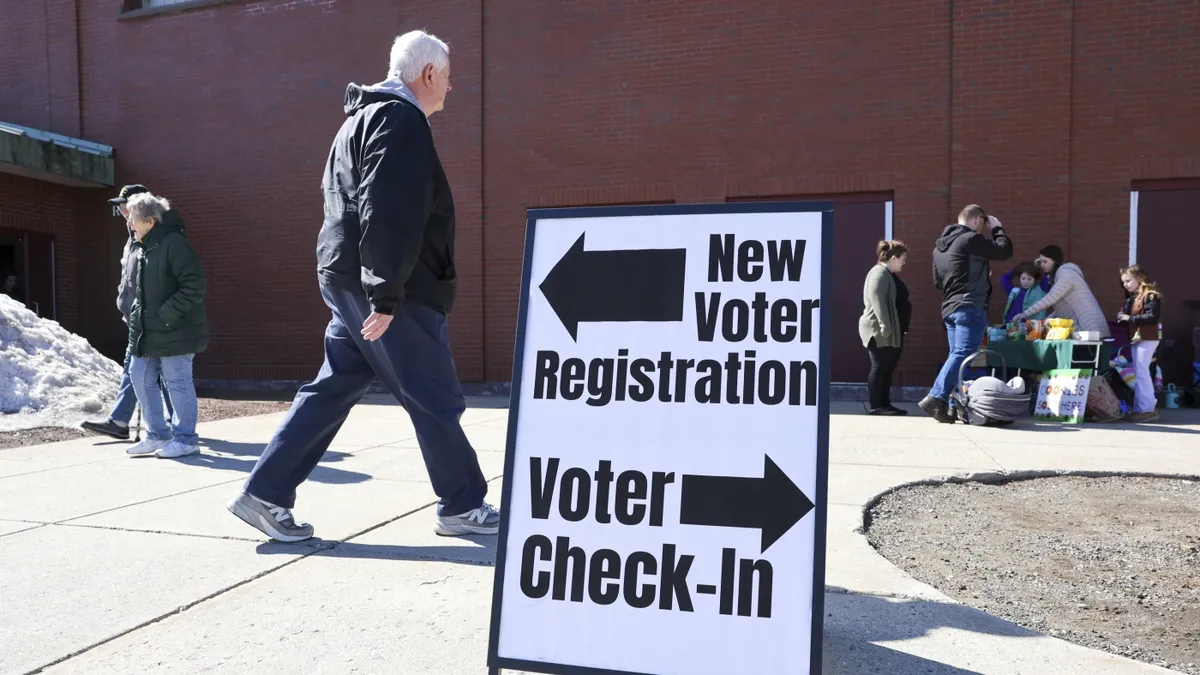
A federal judge in Washington, D.C., has issued a significant ruling that pauses a crucial part of President Trump's executive order implementing sweeping changes to voting and elections. Critics argue that this executive order, signed on March 25, 2023, could potentially disenfranchise millions of eligible voters and exceeds the authority granted to the President.
The executive order mandates the independent Election Assistance Commission (EAC) to modify the national mail voter registration form, requiring applicants to present documentation that verifies their U.S. citizenship before they can register to vote. However, a court order issued on Thursday has temporarily halted this directive, highlighting the ongoing debate around voting rights in the United States.
In her 120-page opinion, Judge Colleen Kollar-Kotelly emphasized that the U.S. Constitution entrusts the power to regulate federal elections to Congress and the States, rather than the President. She pointed out that Congress is currently deliberating on the SAVE Act, a piece of legislation that would similarly require proof of citizenship for voter registration in federal elections. The GOP-led U.S. House of Representatives passed the SAVE Act earlier this month, although it faces significant challenges in the Senate, where Democrats have pledged to block it through a filibuster.
Judge Kollar-Kotelly rejected the notion that Trump's executive order could effectively enforce the SAVE Act through executive decree. She stated, “No statutory delegation of authority to the Executive Branch permits the President to short-circuit Congress's deliberative process by executive order.” This decision also places on hold another provision of Trump's order that mandates government agencies to verify citizenship before distributing voter registration forms to individuals enrolled in public assistance programs.
Kollar-Kotelly's ruling is a legal triumph for voter registration advocacy groups and Democrats who are challenging Trump's extensive executive order through three consolidated lawsuits. While this decision addresses significant elements of the executive order, other sections are still under litigation. Notably, one provision that threatens to withhold federal funding from states counting mail and absentee ballots postmarked by Election Day remains contested, although the judge deemed requests for a pause on these sections as premature.
Another legal challenge to Trump's executive order is being pursued by 19 Democratic state attorneys general in a separate federal court case in Massachusetts. The government has requested that this case be transferred to Washington to be consolidated with the ongoing litigation before Judge Kollar-Kotelly. Plaintiffs in the consolidated lawsuits argue that the President lacks the authority to direct the EAC, which operates as a bipartisan, independent body with strict rules regarding its membership and decision-making processes.
Following the issuance of Trump's executive order, the EAC's executive director reached out to state election officials on April 11, soliciting their input on how to implement the citizenship verification provision, if required. The EAC was scheduled to discuss the order at its meeting on Thursday. Trump's administration has maintained that the order is necessary to enforce election protections, asserting in court that the plaintiffs lack standing to challenge the order.
Opponents of the executive order argue that requiring documentary proof of citizenship would create significant barriers for millions of eligible voters. The order specifies only a limited number of documents acceptable as proof of citizenship, raising questions about whether common forms like a birth certificate would be valid. While passports are the most frequently mentioned option, it's important to note that only about half of American citizens possess one.
The existing national voter registration form, established by a 1993 federal law, allows applicants to attest under penalty of perjury that they are citizens eligible to vote. Although noncitizens occasionally find their way onto voter rolls, state audits have consistently shown that instances of noncitizen voting are exceedingly rare. This raises further concerns about the potential impact of Trump's executive order on the voting process in the United States.